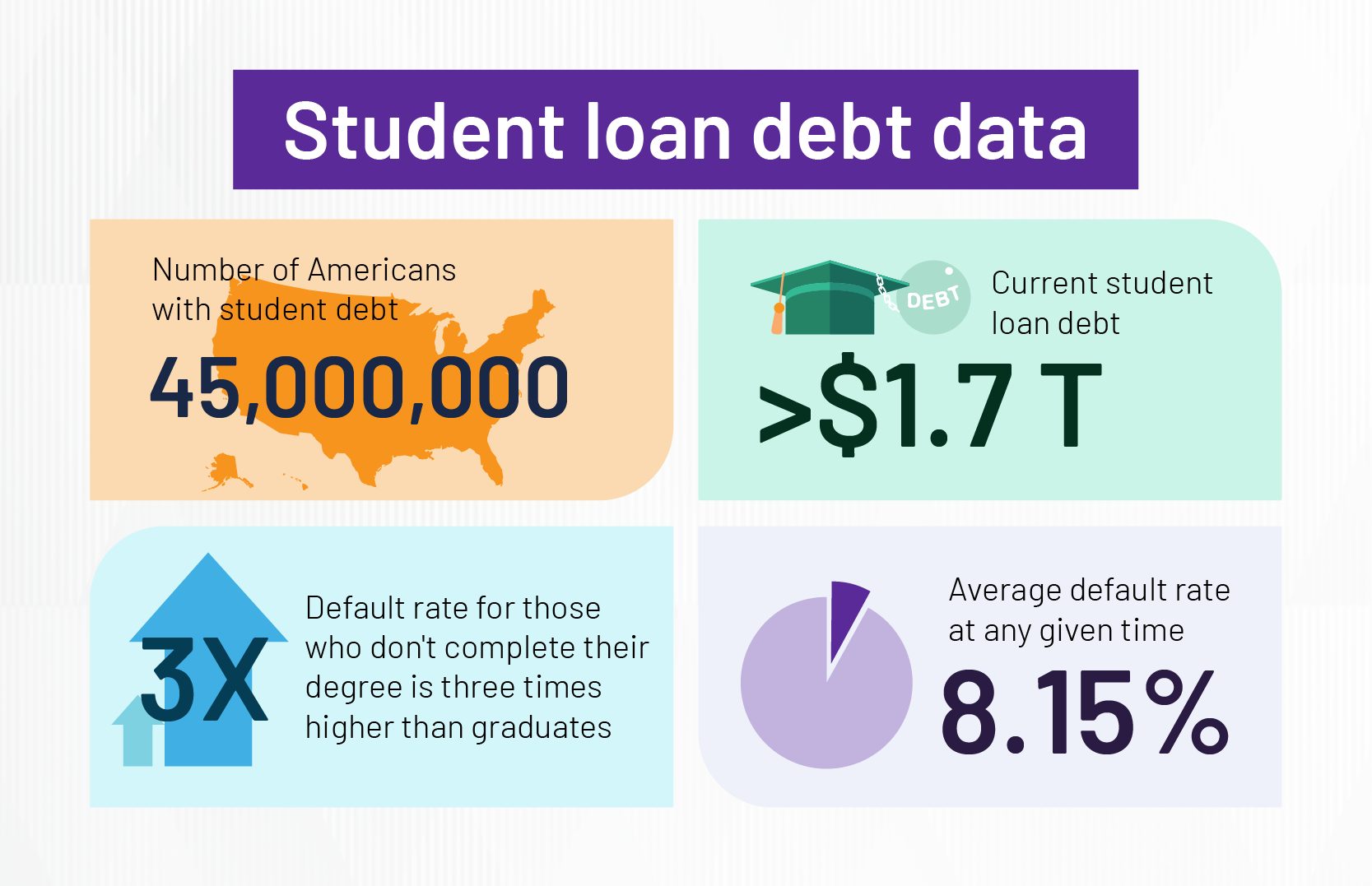
As most institutional accreditation bodies require end-of-course assessments, you’ll need to implement them in your higher education institution. In our end-of-course survey 101 guide, you’ll learn more about these evaluations, from their benefits to question selection and how to implement them for optimal results.
What is an end-of-course survey?
After completing a higher education course, a professor may want to know how effectively the course met learning objectives. Instructional staff administer end-of-course survey questionnaires to gauge their ability as an instructor, the relevance of course materials, and the student experience. These evaluations are anonymous to prevent bias in the grading process. Higher education institutions use course exit survey questions to improve the educational experience for their students.
Benefits of end-of-course surveys
When conducting an end-of-course survey, instructors should communicate to students the importance of their feedback. Explaining how an end-of-course survey helps both students and faculty may help students gain a deeper appreciation for evaluations, potentially contributing to higher response rates and more thorough answers. Ensure your students that the survey’s goal is to serve them and their peers better.
Conducting end-of-course surveys benefits institutions and students in multiple ways, including:
- Receive meaningful student feedback: While some people may avoid course surveys because they fear negative feedback, this strategy helps professors adapt their courses to best meet student needs. Understanding how well a course fulfills learning outcomes provides insights into how a professor should modify a class. For instance, students may share that an instructor presented too many concepts at once. The professor can then aim to organize the course content more effectively.
- Evaluate professor instruction: Evaluations can provide critical insight into a professor’s effectiveness. The best professors hold high standards for their students, are available outside of class, adapt instructional materials based on student needs, and collaborate with colleagues. Instructors can tailor higher education course survey questions to target these areas, using responses to improve instruction. For example, a professor who receives many responses about unclear course objectives should improve their assignments and syllabus, perhaps by incorporating detailed rubrics.
- Foster a positive culture of improvement: Demonstrate to your students that you’re committed to their intellectual advancement. If a particular part of a class, such as reading materials, lectures, or group discussion, failed to meet educational outcomes, a higher education institution could demonstrate how they value students by reflecting their dedication to continuous improvement.
- Empower your student population: In providing course-end surveys, you encourage students to take ownership of their education. An empowered student body will feel more involved, which can create a stronger sense of community or school pride at your institution. This sense of belonging can help drive student engagement and success.
- Assess specific behaviors: Rather than simply looking at how well students do in a course from their grades, end-of-course surveys give administrators a deeper look into an instructor’s specific qualities. Department heads can narrow down areas for improvement if they know how students feel about specific areas of a course or a professor’s teaching style.
What could Watermark do for your institution?
Sample end-of-class survey questions
Regardless of the course subject, many classes feature similar end-of-course survey questions. A course-end survey template would include:
- Instructor performance questions.
- Course material and structure questions.
- Student engagement and outcome questions.
- Teaching assistant questions.
- Student self-assessment questions.
- Open-ended questions.
Most of the questionnaire sections ask students to rate the course on a scale, such as assigning course elements a number from 1-5 or 1-10. The open-ended section allows students to freely write any other comments about a course.
Below are six categories to cover in an end-of-course survey questionnaire.
1. Instructor
A course instructor can significantly impact a student’s experience, and their teaching methods are a major indicator of student success. Therefore, a portion of a higher education end-of-course survey should cover how the instructor helped the students achieve the course objectives.
Questions an instructor can include about their teaching abilities include:
- Was the instructor prepared for class, small-group, and individual meetings?
- Was the professor organized? Did they use class time efficiently?
- Did the instructor effectively communicate with students?
- Did the instructor provide adequate and timely feedback?
- Could students easily contact and access the professor outside of class?
- Was the instructor respectful to students?
- How knowledgeable was the instructor about the material?
- How understandable were the instructor’s explanations during lessons?
- Did the instructor present the course material too fast, too slow, or just right?
- Did the lecturer create an engaging learning experience?
2. Materials
Questions to determine whether course materials successfully fulfilled learning outcomes include:
- Did all assignments and course materials, including lectures, readings, and homework, complement one another?
- Did the course content increase student knowledge of the subject matter?
- Were the course requirements appropriate for its level?
- Did the course follow the provided syllabus?
- Did the instructor clearly define grading policies?
- Were students fairly assessed?
- Did the course topics relate to the career goals of the students?
3. Engagement and outcomes
A higher education end-of-course survey should also attempt to directly measure the student experience, including student engagement and how the course satisfied learning outcomes.
These questions can help instructors and administrators better understand a course’s ability to engage students and further knowledge:
- Do students feel like the course is a safe, welcoming place to express their ideas?
- Do students regularly attend class?
- How well are students typically prepared for class?
- How much have students grown in their understanding of the main course concepts?
- How confident are students in executing a major-related skill?
- Does this course fulfill student expectations of higher education faculty?
- How do students rate their overall satisfaction with the course on a scale from very unsatisfied to very satisfied?
- How likely are students to recommend this course to someone who shares their long-term goals?
4. Questions about TAs
If you have any teaching assistants (TAs) in your class, have students answer questions concerning their performance:
- Was TA feedback useful?
- Were TAs available to help students understand course materials and assignment feedback?
- Did the TA promptly arrive at class?
- Were students comfortable asking the TAs questions?
- Was the TA well-prepared for class, small-group, and individual meetings?
- When confronted with unexpected questions or changes to the learning environment, how flexible was the TA?
- Did the TA encourage participation and discussion?
5. Student self-evaluation questions
Asking students to self-evaluate can put other components of survey data into perspective while also providing insights into student engagement. Useful self-evaluation end-of-course survey questions include:
- How many of the scheduled classes and sessions did the student attend?
- Did the student complete all reading assignments for this course?
- How many hours per week did the student spend on this course?
- How would the student describe the level of effort they put into this course?
- How eager was the student to take this course?
- How would the student rate their current interest in the course material compared to day one?
- What grade would the student give themselves for this course?
6. Open-ended questions
In addition to including questions that ask students to rate a course on a numerical scale, instructors can also ask students open-ended questions to get a well-rounded view of their class’s effectiveness:
- How did the instructor encourage class discussion?
- What did students like most and least about the course?
- What are any recommendations for course improvements?
- Did you encounter any obstacles during the class that hindered achieving learning objectives?
- What are the strengths of the course?
- How did this course enrich each student’s understanding of the subject matter?
- What are three specific ways the course materials and instructor supported student learning?
- What advice would students offer the lecturer to improve instruction quality?
How to use end-of-course survey questions
Here are five tips to get the most out of your end-of-course questionnaires.
Consider your goals
Before crafting your higher education end-of-course survey questions, consider your educational goals. The type of data you choose to collect should depend on how you intend to use student responses. For example, a professor might want to use course evaluations to strengthen their teaching. Professor effectiveness rankings can provide insight into how an instructor can better fulfill the course goals. Administrators can use end-of-course surveys to evaluate professors and identify professional development opportunities.
With your goals in mind, you’ll know what questions to include in a course-end survey and which should be open-ended or use numerical rating scales.
Remember your learning objectives
Instructional faculty can use student surveys to improve course content by better aligning instructional materials with educational outcomes, as they can better gauge how successful a course is. Questions about how well the course content meets learning objectives include:
- Is my learning outcome actionable? Have I given students a clear task to complete?
- Will this course objective directly help students in real life after they graduate?
- Do both students and instructional staff have enough time and resources to achieve a learning objective?
- Is the educational outcome challenging enough for the subject matter and the student’s level of understanding?
- Can students clearly understand what professors expect of them and the objective of the assignment?
Shape the next semester
Higher education end-of-course surveys benefit both faculty and students to shape the following semester. While professors use feedback to improve their classes, students can use it to self-reflect and determine which classes to take the following semester. If students have a positive experience in a class, they may be more likely to take a course next semester in the same department. Further, administrators may want to allot a class with positive reviews more sections during the next semester.
Both professors and students can use course surveys to further the higher education experience in future semesters:
- Professors: Feedback is crucial for professors to fulfill a course’s learning objectives better. Instructors can use student feedback to determine how they helped their students grow. Asking students about how prepared a professor and any TAs were for sessions can help instructional staff better understand how they can help students in the future. An instructor’s attitude and enthusiasm about the course topics also encourage student engagement. Professors can use surveys to evaluate both these hard and soft skills.
- Students: Course exit survey questions should also cover student engagement to ensure a class received the maximum benefit from the course. Students can use end-of-course survey questions to express whether they found a class engaging or if it aligned with their major requirements. Evaluations are an opportunity for students to reflect on their class performance and appreciation of the subject.
Inform faculty assessments
In addition to instructors, department heads and administrators can use surveys to their benefit. Tenure and promotion committees can use survey feedback to inform decisions about an instructor’s advancement. Department heads can use the questionnaire results in faculty assessments, whether in one-on-one reviews or when evaluating necessary department changes.
Close the feedback loop
Students want to know that their institution values their voices. To improve student satisfaction and encourage future responses, tell students what changes your institution is making and how their feedback informed your decisions. You could also acknowledge any trends in the feedback that aren’t yet feasible to act on and explain why. This transparency motivates faculty to be intentional when engaging with responses, and it makes students collaborators in shaping their own education experience.
How to optimize end-of-course surveys
To increase the student response rate, consider using online course evaluations. Online evaluations are more accessible to a range of students, as they can complete surveys outside of class time. They also help reduce the cost of printing paper evaluation forms. Further, online course evaluations allow faculty and administrators to receive information and identify trends more efficiently.
Your higher education institution can also streamline the end-of-course survey process with course evaluation and survey software. Modern technology helps deliver survey results to faculty, administration, and students faster, allowing higher education institutions to improve without complex manual data analysis. Leading survey software can integrate with your existing learning management system (LMS) provider, including Canvas, D2L, Blackboard, and Moodle, linking to the student, instructional staff, and course.
Higher education students are busy. Therefore, you can maximize response rates by explaining the purpose of the evaluation and using the fewest possible questions. When surveys are long, students are less likely to respond. You can also help save students time by including several standardized questions across departments. When students recognize questions, they may be more likely to respond quickly. You can include course-specific questions at the end of the survey.
Optimize end-of-course surveys with Watermark

When the time arrives for end-of-course surveys, many institutions experience low response rates, limited insights, and long lags between survey distribution and feedback implementation. If your institution values streamlined access to quality data that drives improvement, try Watermark Course Evaluations & Surveys.
This innovative higher education survey solution can help your institution:
- Gather more responses with a mobile-friendly survey experience, LMS-integrated reminders, and optional grade gating.
- Gain richer insights with user-friendly reporting, visualization tools, and AI-driven sentiment analysis for open-ended questions.
- Integrate evaluation reports with faculty success profiles, accreditation cycles, and curriculum improvement processes.
- Access feedback in real time for accelerated progress in every area of institutional excellence.
Request a demo today to see how Course Evaluations & Surveys can optimize your end-of-course surveys for institutional success.















































































































































































































































































































































































































